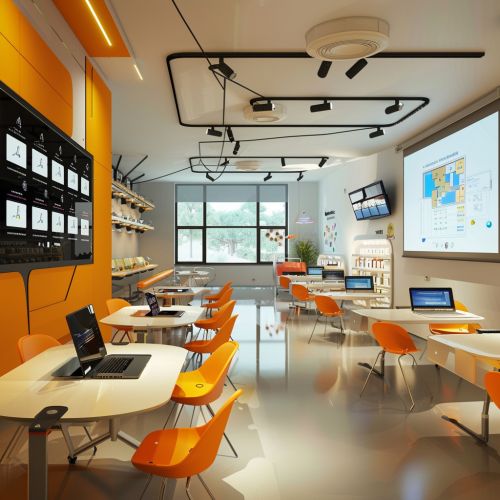Future of Education
Introduction
The Future of Education is a topic of great interest and importance in the current era of rapid technological advancement and societal change. As we move further into the 21st century, the traditional models of education are being challenged and transformed by emerging technologies, evolving societal needs, and a growing understanding of the diverse ways in which individuals learn.


Technological Advancements in Education
One of the most significant factors shaping the future of education is the advancement of technology. The integration of technology into the classroom has already begun to transform the way education is delivered, and this trend is expected to continue and accelerate in the future.
Digital Learning
Digital Learning is becoming increasingly prevalent in modern education. This involves the use of digital tools and resources to facilitate learning, including online courses, digital textbooks, and learning management systems. Digital learning allows for greater flexibility and accessibility in education, enabling students to learn at their own pace and in their own time. It also allows for personalized learning, with digital tools able to adapt to individual students' learning styles and needs.
Artificial Intelligence
Artificial Intelligence (AI) is another technological advancement that is expected to have a significant impact on the future of education. AI can be used in education in various ways, such as automating administrative tasks, personalizing learning, and providing real-time feedback to students. AI can also be used to analyze educational data, helping educators to identify gaps in learning and to develop more effective teaching strategies.
Virtual and Augmented Reality
Virtual Reality (VR) and Augmented Reality (AR) are also expected to play a significant role in the future of education. These technologies can provide immersive learning experiences, enabling students to explore virtual environments and to interact with virtual objects. This can enhance learning in various fields, such as science, history, and art.
Societal Changes and Education
In addition to technological advancements, societal changes are also shaping the future of education. As society evolves, so too do the skills and knowledge that individuals need to thrive.
Skills for the Future
The skills required for the future workforce are changing. There is a growing emphasis on skills such as critical thinking, creativity, and emotional intelligence, as well as skills in areas such as technology and data analysis. As such, the future of education will likely involve a shift in focus from rote learning to the development of these key skills.
Lifelong Learning
Lifelong Learning is becoming increasingly important in the modern world. As the pace of change accelerates, individuals need to continually update their skills and knowledge to keep up. This is leading to a shift in education from a one-time event to a continuous process, with individuals engaging in learning throughout their lives.
Diversity and Inclusion
Diversity and inclusion are also important considerations for the future of education. As society becomes increasingly diverse, it is important that education is inclusive and accessible to all individuals, regardless of their background or circumstances. This involves ensuring that educational resources and opportunities are available to all, and that education is responsive to the diverse needs and experiences of learners.
Conclusion
The future of education is a complex and multifaceted topic, shaped by a range of factors including technological advancements and societal changes. While it is impossible to predict with certainty what the future of education will look like, it is clear that it will be a dynamic and evolving field, requiring ongoing adaptation and innovation.
